- Home
- Graham Hancock
War God: Nights of the Witch Page 29
War God: Nights of the Witch Read online
Page 29
And if not … well … Alvarado smiled. The expedition would just have to find a new leader, and he was ready to step up to the mark.
Part II
19 February 1519 to 18 April 1519
Chapter Forty-Five
Friday 19 February 1519 to Thursday 25 February 1519
Huicton sat on his begging mat in his usual spot at the junction where the Tepeyac causeway branched off from the Azcapotzalco causeway in the northern quarter of Tenochtitlan. Invisible, insubstantial, able to pass unseen wherever and whenever she wished, Tozi approached him without making a sound and waited for a moment when there was a suitable gap in the crowds. Then, quite suddenly, giving no warning, she faded back into visibility right in front of him.
He gasped in surprise, blinked rapidly twice and put his old hand to his chest, but very soon recovered his composure. ‘Tozi!’ he said, with real joy in his voice. ‘I knew you’d be back … You’re not one to give yourself up to the knife.’ His brow furrowed. ‘But how long have you been standing here invisible waiting to shock me?’ He beckoned her to sit down beside him on the mat, rested his hand on her shoulder. ‘You’ve not harmed yourself with this fade?’
‘No, Huicton, I have not harmed myself. I’ve gone through many changes since we last met.’
There was a secret that Tozi had kept to herself during her months in the fattening pen. She’d told Coyotl and Malinal that her mother had brought her to Tenochtitlan when she was five years old; that she’d died two years later, leaving Tozi to fend for herself from the age of seven until she was grabbed off the street by Moctezuma’s catchers, who had brought her to the fattening pen when she was fourteen. That was all true, but she’d not told them her mother had been murdered by a mob of commoners whipped up into a frenzy against witches, or that they’d have murdered Tozi, too, if she hadn’t cast the spell of invisibility and faded for a thirty count to escape them.
And she’d said nothing about Huicton, the poor, blind beggar with milky-white eyes who’d been there on the street corner when it happened. After the mob surged on in search of other victims, he’d looked for her and rescued her from the hole she’d crawled into where she lay helpless, stunned and bleeding from the effects of the fade.
Because Huicton wasn’t really blind.
And when he passed through the streets of Tenochtitlan tapping with his stick, seeming to feel his way, he saw everything that went on.
He wasn’t really a beggar, either. In that disguise, he’d explained to Tozi as he nursed her back to health all those years ago, he served as a spy for King Neza of Texcoco who was nominally Moctezuma’s vassal but pursued many independent policies.
‘How long have you known how to make yourself invisible?’ Tozi remembered Huicton asking. His voice was low, with a strange nasal drone, almost like a swarm of bees in flight, and he’d smiled – such a nice, warm, conspiratorial smile – adding almost shyly: ‘A spy with such a skill would be truly valuable.’
There was something trustworthy about him, so Tozi had told him the truth – that it was a gift she’d been born with but that it had to be harnessed by the spell of invisibility. Her mother had begun training her in the use of the spell from her earliest childhood, but it was difficult, and by the age of seven Tozi had only succeeded in mastering it for very short periods. Huicton had seen for himself how close it brought her to death when she sustained a fade for longer than a few seconds.
She remembered the close, intelligent way he’d studied her face through his clouded, deceptive eyes. ‘You have other gifts, I think?’ he’d said finally. She wasn’t sure if it was a question or a statement, but in the years that followed they had often worked together. Her job was to lead him through the streets like a dutiful granddaughter, attracting sympathy and alms from passers-by, and as they walked, or sat on their mats and begged, he’d talk to her constantly about many things. Little by little she came to realise that these conversations were lessons – a sort of school – and that Huicton’s purpose was to teach her to look deep within herself and find her gifts. He claimed no magical abilities of his own, but without his encouragement and advice, Tozi knew she would never have had enough confidence to learn how to send the fog, or read minds, or command animals.
He was not always with her. Sometimes the cunning old spy would vanish from Tenochtitlan for days on end as completely as if he did, after all, possess some magic. He never gave any explanation or warning. He was just gone – she presumed to take the intelligence he’d gathered to King Neza in Texcoco.
It had been during one of these periods of absence, much longer than usual, that Moctezuma’s catchers had seized Tozi and put her in the fattening pen. But now, the morning after the terrible orgy of sacrifices on the great pyramid of Tenochtitlan, she was back and reunited with Huicton.
‘I’m so sorry I was gone when you were taken,’ he hastened to tell her. ‘My master King Neza died and problems arose. His eldest son Ishtlil should have become king in his place but Moctezuma preferred the younger son Cacama and put him on the throne instead.’
Even in the fattening pen, Tozi had heard rumours of the recent events in Texcoco. ‘So do you serve Cacama now?’ she asked.
‘No! Certainly not! Cacama is a yes-man who does whatever Moctezuma tells him. But Ishtlil has a mind of his own – like his father. Rather than accept the new state of affairs, he broke away, seized control of Texcoco’s mountain provinces and declared a rebellion. He’s at war with both Cacama and Moctezuma, and that war has grown bloody in the months you’ve been imprisoned.’ Huicton glanced uneasily at the crowds passing by on the causeway and his voice fell to an almost inaudible whisper. ‘I support the cause of Ishtlil,’ he confided. ‘He’s become my new master and I do my spying for him now … A dangerous task – much more dangerous than before.’
Tozi understood the need for discretion. Numbering in their thousands, Moctezuma’s secret police walked the streets of Tenochtitlan in plain clothes, listening and watching for any hint of sedition. They could be in any crowd, at any time. Even here. ‘It was this change of circumstances,’ Huicton continued, ‘that kept me away from Tenochtitlan for so long and when I returned you’d been taken.’ An apologetic grimace: ‘I looked for you, I discovered what had happened, I even learned where they were keeping you, but there was nothing I could do except work for the destruction of Moctezuma. He tried to poison Ishtlil, you know. At least I managed to foil that plot! And I continued to have faith in you, my little Tozi, and to believe that somehow you would make yourself free. You always had great powers …’
‘Not great enough to escape from the fattening pen!’ Tozi whispered. ‘I would have died yesterday on the killing stone but Hummingbird saved me. Hummingbird himself!’
Consternation crossed the old man’s face. ‘I don’t understand you, child. What do you mean, Hummingbird saved you?’
‘I couldn’t escape from the pen,’ Tozi said, ‘no matter how hard I tried. I could never fade for long enough, so I was with all the other women victims brought for sacrifice yesterday. Last night I reached the top of the great pyramid. Moctezuma wielded the obsidian knife. But Hummingbird intervened to save me, he showed himself to me, he whispered in my ear as I whisper in yours now, he touched me with his fire when lightning struck his temple, and I was spared …’
Huicton’s frown deepened. ‘What did the god say to you?’ he asked.
‘He said “You’re mine now”.’
‘You’re sure of this?’
‘Sure as I sit here alive beside you! The god saved me from Moctezuma’s knife, Huicton, and he gave me the power to fade whenever I wish to. I don’t even need the spell of invisibility any more! But I’m not “his” and I never will be “his”! I discovered my purpose when I was up there on the pyramid – and it’s to destroy him not to serve him.’
The old man looked suddenly weary. ‘The road to Mictlan is paved with good intentions just like that,’ he said. ‘When you accept a gift from the gods, t
here’s always a price to pay.’
‘At any other time you would be right,’ said Tozi, ‘but Hummingbird is just one god amongst many and his reign is nearly over.’ She gripped the bent old man by the shoulders: ‘This is the year that has been foretold,’ she whispered, ‘the year One-Reed in which Quetzalcoatl will return with all his host. Even now he journeys across the eastern ocean to overthrow Hummingbird and end the rule of Moctezuma forever. I can see you doubt me! Of course you do! I don’t blame you. But what I say is true. I have sure knowledge of this. Human sacrifices will end, torture will end, slavery will end, pain and suffering will end, and we who are alive at this time will witness the dawn of a new age. Will you not believe me?’
‘You sound so certain,’ said Huicton. There was hope in his voice, but also sadness.
‘I am certain! This is the year One-Reed! All those who are with Moctezuma will fall and all those who are against him will rise. Your new master Ishtlil of Texcoco will rise. The Tlascalans will rise. The power of the Mexica will be broken.’
On the busy causeway, few of the prosperous passers-by even glanced at the beggars who were too far beneath their contempt to be noticed. Tozi put her lips close to Huicton’s ear. ‘I could kill Moctezuma,’ she whispered. ‘I could enter the palace without being seen, pass easily through the walls of his bedchamber and cut his throat while he sleeps.’
The old man thought about it for a while, staring straight ahead over the waters of Lake Texcoco with his milky, deceptive eyes. Finally, speaking so quietly Tozi had to strain to hear him, he said: ‘It’s tempting but I advise against it. And for two reasons. First, you have magic – I’ve always known that and I can see that it’s more powerful now than ever before. But Moctezuma is surrounded by his own sorcerers, who work to protect him from magical attacks of the kind you’re contemplating. Some of them may be stronger than you have become, even with this gift you’ve received from Hummingbird …’
Tozi shook her head vigorously. ‘Their strength cannot match mine,’ she said, not boasting but simply expressing the quiet confidence she felt.
Huicton looked at her with disapproval: ‘Never be too sure of yourself,’ he said. ‘In this world of the strong and the weak there is always someone stronger than ourselves. If you encounter such a one in your invisible form, it might be you, not Hummingbird, who is destroyed …’
She began to voice an objection, but he held up his hand palm outward to silence her. ‘I know you do not imagine this could happen, but Tozi, please believe me when I say that it can and that you – even you! – can be snuffed out like the flickering flame of a lamp or imprisoned in some sorcerous realm from which you can never escape. How then would you work for the return of Quetzalcoatl? What then would be the fate of the good you hope to accomplish with your powers?’ Again he waved her to silence. ‘Besides,’ he continued, ‘there’s a second reason to leave Moctezuma alive and this is simply that he’s the worst Speaker the Mexica have had in a hundred years. If you were to succeed in killing him, it’s a plain fact that anyone else they might put on the throne when he’s dead – Coaxoch, Cuitláhuac, even Guatemoc – would do a better job than him. If we’re truly to bring the Mexica and their evil god down, and if you’re willing to use these new powers of yours in ways you may not have thought of yet, then Moctezuma’s weaknesses and failings, his superstitions and his fears can be made to serve our interests …’
Tozi thought about it and decided that what Huicton was saying made a strange kind of sense.
‘You’re right,’ she agreed after a moment. ‘Maybe the fool is more use to us alive than dead!’
‘He is,’ said Huicton. ‘You will see. Now come … We need to plan this carefully. I have a place where we can talk without risk of being overheard.’
Hummingbird did not appear again after Moctezuma freed the woman and the girl and he began to fear that – despite the great harvest of victims he had offered – he had somehow lost the favour of the god.
Sure proof of this was not long coming.
On the morning of the second day after the holocaust, a royal messenger spattered with dirt and blood and, in the last stages of exhaustion, stumbled into Tenochtitlan along the Iztapalapa causeway. He was brought directly to the palace where he prostrated himself on the floor of the audience chamber in the normal manner, but was overcome by emotion and stammered uncontrollably.
‘I … I … There has been … The Lord Coaxoch has …’
‘Speak, man!’ Moctezuma urged. ‘You have nothing to fear …’
The messenger sobbed and attempted to grasp the royal feet with his grimy hands, producing a stern rebuke from Cuitláhuac who was also present in the chamber.
‘You have nothing to fear,’ Moctezuma said again. ‘Give us your report.’
It took a long while, and many such reassurances, before the messenger was sufficiently calm to speak. The giant field army mobilised by the Serpent Woman with the ambitious goal of seizing a further hundred thousand Tlascalan victims for sacrifice was no more. Two of the regiments, sixteen thousand men, had been lured away by a clever ruse and massacred in the eastern foothills of Iztaccihuatl. The other two regiments, together with tens of thousands of camp followers, had been surrounded at the muster point and annihilated. Inevitably some Mexica had escaped the fighting, and were presently limping back to Tenochtitlan, but their numbers were not thought to exceed three thousand. About a thousand more had been taken prisoner and reserved for sacrifice. It was clear, however, that the Tlascalans’ primary goal was not to accumulate captives but to kill great numbers of their enemies on the battlefield. In this they had succeeded.
‘Who were the Tlascalan generals?’ Moctezuma asked, his voice sounding strangely thin and cold in his own ears.
‘Shikotenka the younger, lord,’ the messenger stammered, ‘his father Shikotenka the elder, and the Lord Maxixcatzin.’
Moctezuma sat silent on his throne. These were no mere generals but the three most powerful men in Tlascala, the younger Shikotenka being the battle-king, the older Shikotenka being the civil king and Maxixcatzin being the deputy to both.
‘And what of the Serpent Woman? What of his sons?’
‘All amongst the dead, lord.’
Cuitláhuac stepped forward and addressed the messenger directly. ‘My own son Guatemoc was with the Serpent Woman’s army,’ he said. ‘Do you know his fate?’
‘He lives, lord, though badly wounded and, I regret to report, close to death. Some of his men survived and carried him away from the battlefield. He is with them now, returning to Tenochtitlan in a well-protected caravan attended by surgeons, may the gods preserve him.’
‘May the gods preserve him,’ echoed Cuitláhuac.
Seeing his brother’s expectant look, Moctezuma, too, repeated the time-honoured formula. The truth was, though, he’d never cared for his warrior nephew. Guatemoc was handsome, charismatic and virile. These qualities already made him a threat to the succession since Moctezuma had many daughters by his wives and many sons by his concubines, but only one legitimate son, the sickly boy Chimalpopoca, who was not yet four years old. Worse, the high esteem in which Guatemoc was held by the public and his wild, ambitious nature – so different from Cuitláhuac’s stolid loyalty and complete lack of personal popularity – made him a threat to Moctezuma himself. All in all, therefore, it would have been better if the Tlascalans had succeeded in killing him. Still, with luck, he would die on the journey. ‘You’ve done well,’ he told the messenger. ‘You may go.’
The wretched man crawled gratefully backwards out of the audience chamber. Moctezuma waited until the door closed behind him before he turned to Cuitláhuac. ‘You have my permission to go to your son,’ he said. ‘Meet him on the road, speed his journey and bring him to the royal hospital. My surgeons can work wonders.’
Cuitláhuac bowed. ‘Thank you, brother. I will leave at once.’
‘Yes, yes, of course. But before you go,’ Moctezuma ordered, ‘kindly arra
nge to have that messenger strangled. We have lost an entire field army. I cannot forgive the bearer of such terrible news.’
During the next days, as the survivors of the carnage in Tlascala straggled back to Tenochtitlan and the Mexica began to count the cost of their first real defeat in battle, Moctezuma became ever more deeply convinced that all his problems were connected to the powerful strangers who had appeared on the coast of the Yucatán four months before. They must indeed be the retinue of Quetzalcoatl and it must therefore be true that the bearded god was about to return – and in this very year One-Reed, as had long ago been prophesied. Since the Mexica had strayed far from his ways, it was not to be wondered that he had given the Tlascalans so significant and unprecedented a triumph. Even so, the fact remained that Hummingbird had driven Quetzalcoatl out from the land of Mexico in times gone by and Moctezuma clung to the hope that he would do so again. He remembered the promise the war god had made to him in the temple: ‘You have nothing to fear for I fight at your side … I will bring you victory.’
It seemed unlikely that promise would still be kept, now he had lost Hummingbird’s favour. But might there not be something he could do, some great sacrifice he could make, that would win back the approval of the god?
Moctezuma’s attempts to meditate on the problem and find the right solution were constantly interrupted by the more mundane distractions of running his empire with all its dangers and rivalries.
On the morning of the fourth day after the battle with the Tlascalans, Cuitláhuac brought Guatemoc into the city and installed him in a richly furnished room in the royal hospital. Moctezuma summoned Mecatl, his personal physician, who informed him from the floor of the audience chamber that the upstart prince would live.
‘Live, you say? I heard he was close to death.’

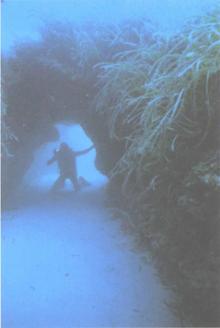 Underworld: The Mysterious Origins of Civilization
Underworld: The Mysterious Origins of Civilization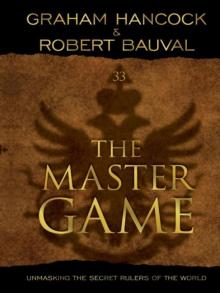 The Master Game: Unmasking the Secret Rulers of the World
The Master Game: Unmasking the Secret Rulers of the World America Before
America Before Entangled
Entangled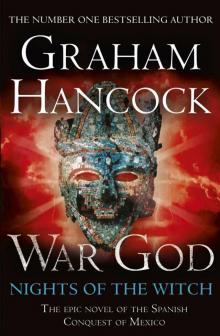 War God: Nights of the Witch
War God: Nights of the Witch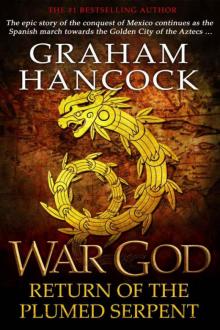 War God: Return of the Plumed Serpent
War God: Return of the Plumed Serpent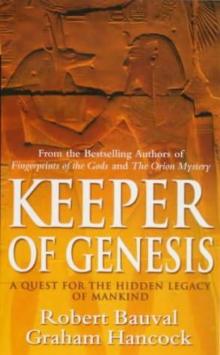 The Message of the Sphinx AKA Keeper of Genesis
The Message of the Sphinx AKA Keeper of Genesis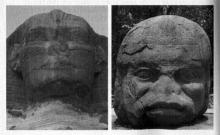 Fingerprints of the Gods
Fingerprints of the Gods The Sign and the Seal
The Sign and the Seal The Mars Mystery: The Secret Connection Between Earth and the Red Planet
The Mars Mystery: The Secret Connection Between Earth and the Red Planet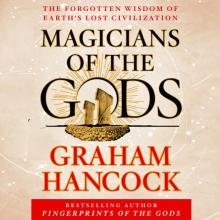 Magicians of the Gods: The Forgotten Wisdom of Earth's Lost Civilization
Magicians of the Gods: The Forgotten Wisdom of Earth's Lost Civilization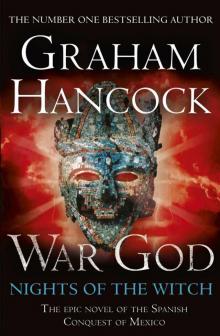 War God
War God Underworld
Underworld The Mars Mystery
The Mars Mystery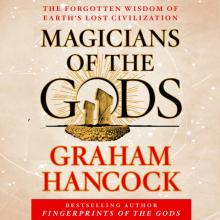 Magicians of the Gods
Magicians of the Gods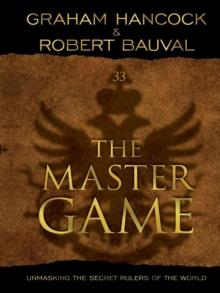 The Master Game
The Master Game